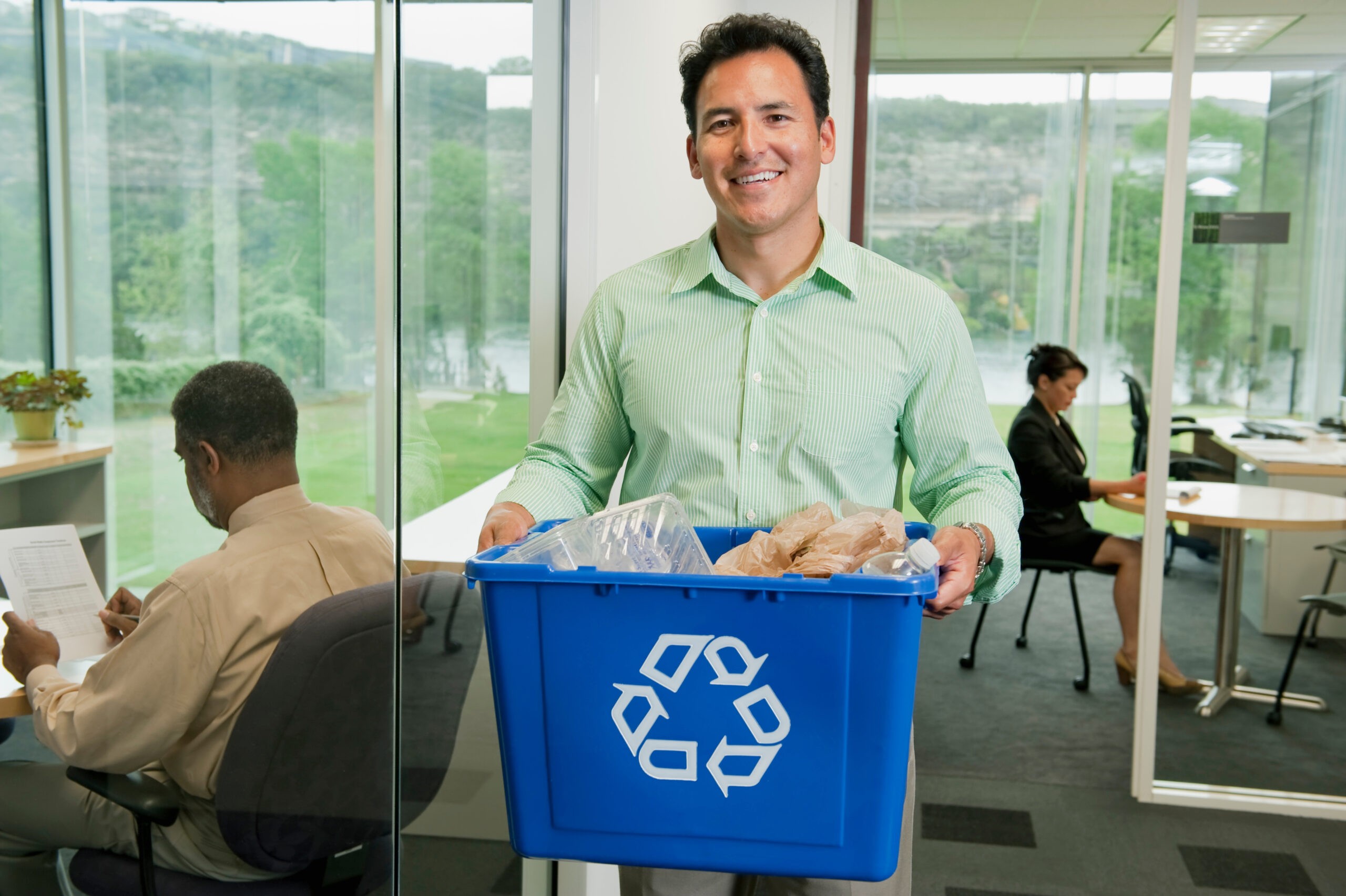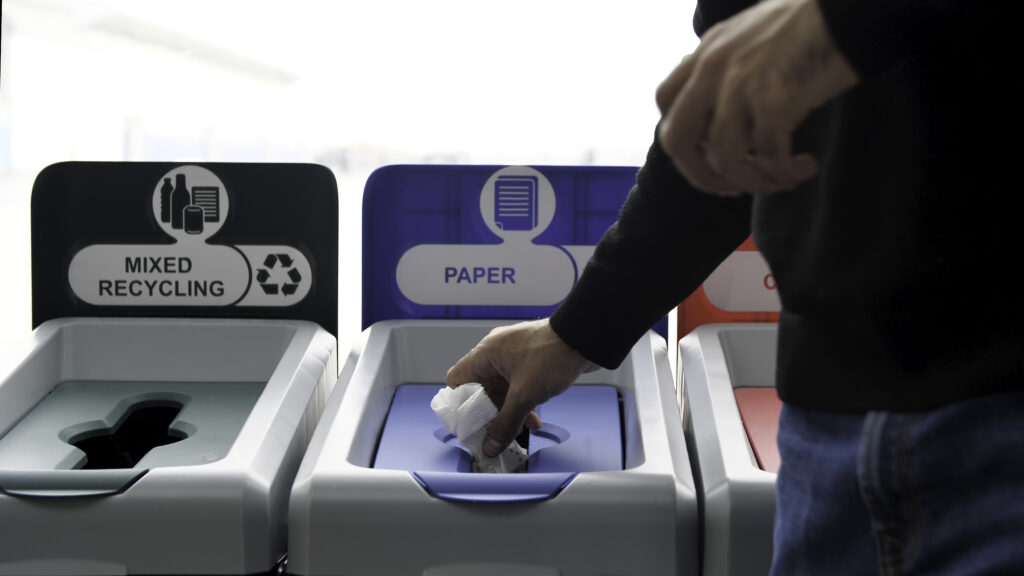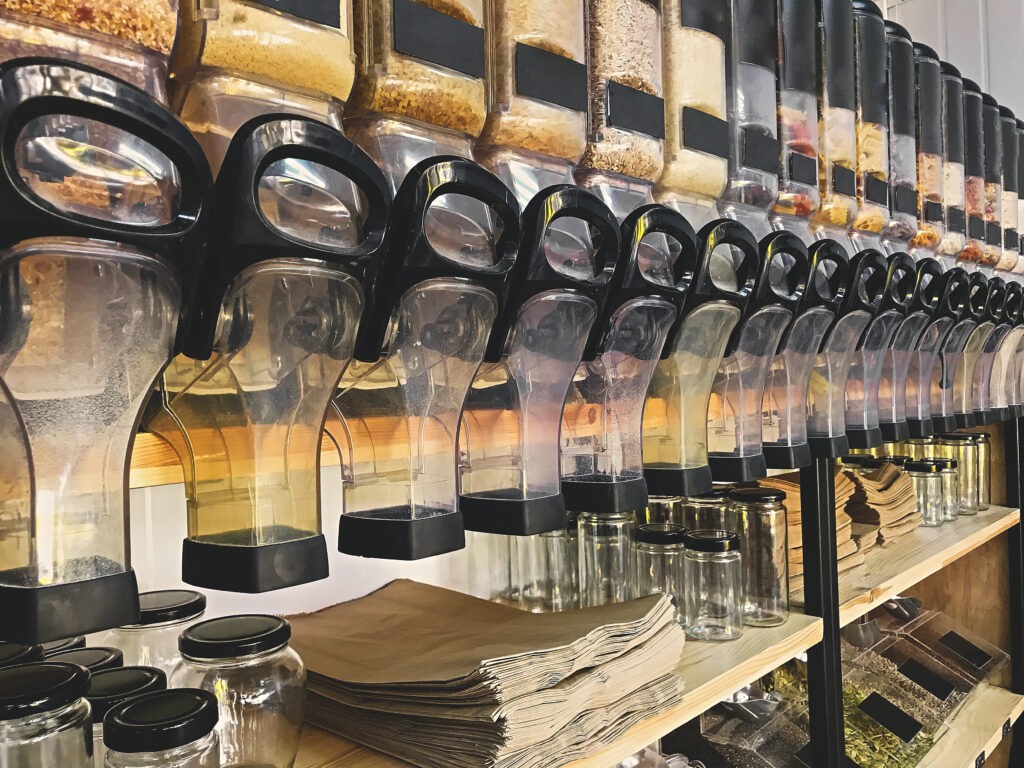
06 Sep Reducing waste in the workplace – Zero Waste Practices
We all know that reducing waste is an important part of conserving our planet’s resources and protecting it for many years to come. Fortunately, many of us are conscious of our impact and make efforts to reduce waste at home by recycling, returning bottles, using ceramic dishes over paper plates, and so on. But what about reducing waste in the workplace?
The world of work is becoming increasingly digitised, but daily office life still consumes a huge amount of resources. And it’s not just paper that we’re binning. Plastic bottles and single-use cups, broken electronic devices, waste food, packaging and much more all add to the pile. With the ever-increasing urgency to look after our environment, it’s clear that organisations that want to reduce waste, in the office, need to do more than provide a few different bins.
10 practical ideas for how your organisation and employees can reduce waste in your office.

Make a small recycling center by providing bins to put returnable bottles, non-returnable bottles, and paper.
1. Appoint waste champions
Better sustainability and recycling practices are more likely to be adopted through peer encouragement rather than directives from management. Appoint a waste prevention team to champion green initiatives. They can help create a positive and inclusive culture and encourage people to work in more environmentally friendly ways.
2. Take a waste audit
A waste audit can help set a baseline and create benchmarks to track office waste. By doing this you can see whether people are recycling properly and set targets for waste reduction and recycling. But try to keep it light-hearted.
3. Start with small wins
Think about the small changes you can make in the office that will benefit staff and the organisation. If you find staff are having trouble knowing which bins to use for certain items, use signage to show what materials can go where. This will help them understand and give them more confidence to recycle.

While recycling is helpful, the biggest impact comes from using less paper in the first place. With programs like Google Docs that allows you to write, edit, and collaborate online it’s easier than ever to eliminate the amount of paper you use in the workplace.
4. Go paperless
There’s no reason why most organisations can’t ditch the paper habit in some way. Benefits include saving space that would normally be used to store paper stock, saving costs on printing, easier access to information online, and increased productivity. It also offers great environmental benefits, like saving trees from the paper mill and reducing the amount of paper sent to landfill. And it all helps to reduce your organisation’s carbon footprint.
5. Eliminate single-use materials
Lunches at work really can be litter-free and there’s no time to lose in reducing single-use items around the office. Investing in reusable cutlery, plates, and cups eliminates the need for throwaway items. This helps embrace the circular economy and cuts down on waste produced in the office.

Buying in bulk reduces packaging waste, this means less plastic, cardboard, and other materials end up in landfills, reducing overall waste and environmental impact.
6. Buy in bulk
Coffee beans aren’t the only thing you should buy in bulk for the office. Purchase items like sugar and creamer, snacks, cleaning supplies, and Kleenex in bulk instead of individually packaged to lower the cost per unit and reduce the amount of packaging you throw away.
7. Compost
Food-related recycling can go much further than making sure packaging can be reused. Many organisations now have composting bins on their premises, where organic waste can be collected, then taken away to create useful fertilisers for agriculture. Waste food, napkins, tea bags, and even the cup sleeves that come with your coffee, can all go straight into the composting bin and be put to good use elsewhere. Mitie helped Network Rail reduce the amount of food waste going to landfill by 80% which reduced the company’s carbon footprint and saved them money.
8. Provide filtered water
Plastic bottles are a huge generator of waste, with billions ending up in landfill. When it comes to plastic bottles, people in the office should be discouraged from using them and offered practical alternatives instead. One great way is to provide staff with filtered water and glasses, and even branded reusable water bottles. This leads to less waste and employees save money by not buying bottled water.
9. Offer incentives
Giving the workforce a recycling target adds a fun and motivating element to your waste reduction efforts. Challenge staff to pack a zero-waste lunch in containers rather than going to a supermarket and buying packaged foods. This will cut down on waste, eliminate the use of single-use items, and embrace the circular economy.
10. Education is key
A lack of knowledge can often be the reason why unnecessary waste is created in the office and ends up in landfill. Staff training will not only benefit people around the office but also the organisation. Informative ‘Lunch and Learn’ sessions, where staff can find out what can and can’t be recycled and how they can ditch single-use materials, are extremely useful. By taking time to educate staff in waste management, the organisation will experience better recycling rates and a reduction in waste, and staff will feel part of the solution, not the problem.
Have you also read these articles?
Mastering Event Logistics: A Comprehensive Guide to Smooth Execution



